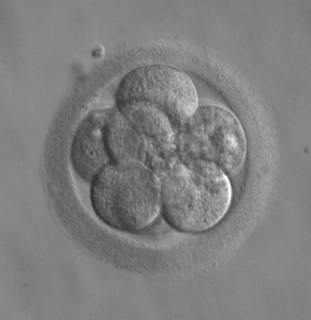IVF Nobel Prize 2010
Monday 4 October 2010
IVF discoverer wins Nobel Prize for Medicine 2010
Robert G Edwards has received the Nobel Prize for Medicine this year.  His work began in the 1950's and the climax came in July 1978 with the first test tube baby, Louise Brown. She has since had a child of her own demonstrating the viability of the process. Students could read the announcement (and other notices that will be coming out) to consider the ethical issues.
His work began in the 1950's and the climax came in July 1978 with the first test tube baby, Louise Brown. She has since had a child of her own demonstrating the viability of the process. Students could read the announcement (and other notices that will be coming out) to consider the ethical issues.
Katherine Harmon from the Scientific American, gives this presentation of some of the ethical issues of IVF
"Members of the Nobel committee said that this year's prize was not intended as a statement on the ethics of human embryonic stem cell research, a field that has come under increasing scrutiny after a surprise ban on U.S. federal funding in August (which has been stayed during the appeals process). Supporters of embryonic stem cell research point out that many fertilized eggs created for IVF are left to languish in freezers, with little hope of adoption. These extra embryos could be put to better use, they argue, as new human embryonic stem cell lines. Critics of human embryonic stem cell research contend, however, that because creating stem cell lines destroys the embryo, the more ethical choice is to leave the IVF extras intact. In its earlier years, assisted reproductive technology (ART) itself was a subject of ethical debate, but it is now a generally accepted treatment for many of the estimated 10 percent of couples who are unable to conceive a child naturally."[1]
Footnotes
- 1. Harmon, Katherine. "Robert Edwards Wins Nobel Prize in Medicine or Physiology for Pioneering In Vitro Fertilization [Update]: Scientific American." Science News, Articles and Information | Scientific American. N.p., n.d. Web. 4 Oct. 2010. .

